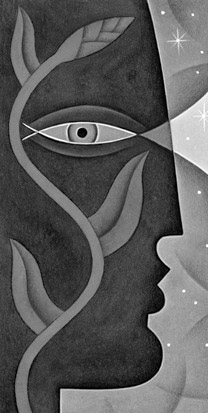ABISHAI

Most great leaders struggle with a few followers who try too hard. For David, Abishai was that kind of follower. His fierce loyalty to David had to be kept from becoming destructive—he was too willing to leap to his leader’s defense. David never put down Abishai’s eager loyalty. Instead, he patiently tried to direct its powerful energy. This approach, while not completely successful, saved David’s life on at least one occasion. At three other times, however, Abishai would have killed for the king if David had not stopped him.
Abishai was an excellent soldier, but he was better at taking orders than giving them. When he wasn’t carrying out David’s orders, Abishai was usually under the command of his younger brother Joab. The two brothers helped each other accomplish great military feats as well as shameful acts of violence—Abishai helped Joab murder Abner and Amasa. When he was effective as a leader, he led mostly by example. But all too often he did not think before he acted.
We should be challenged by Abishai’s admirable qualities of fearlessness and loyalty, but we should be warned by his tendency to act without thinking. It is not enough to be strong and effective; we must also have the self-control and wisdom that God can give us. We are to follow and obey with our hearts and our minds.
Strengths and accomplishments |
|
Weaknesses and mistakes |
|
Lessons from his life |
|
Vital statistics |
|
Key verses |
“And Abishai, the brother of Joab, the son of Zeruiah, was chief among three. And he lifted up his spear against three hundred, and slew them, and had the name among three. Was he not most honourable of three? therefore he was their captain: howbeit he attained not unto the first three” (2 Samuel 23:18, 19). |
Abishai’s story is told in 2 Samuel 2:18—23:19. He is also mentioned in 1 Samuel 26:1–13; 1 Chronicles 2:16; 11:20; 18:12; 19:11, 15.